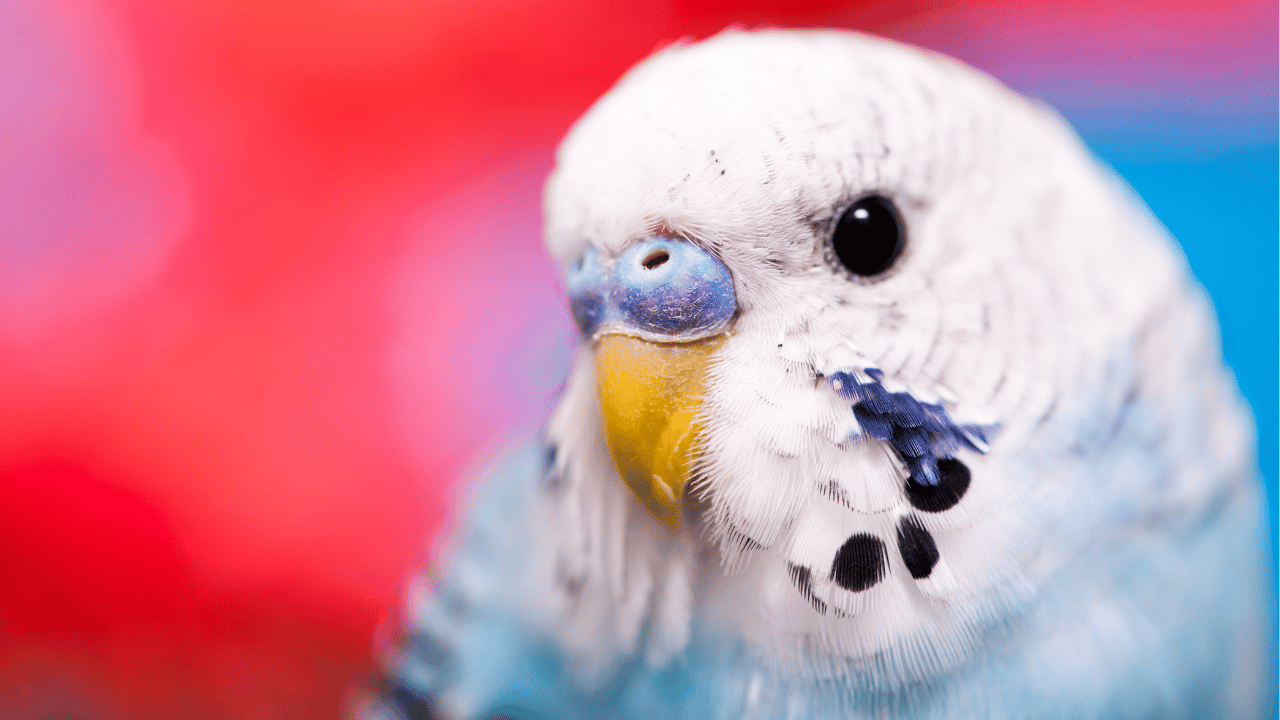The Importance Of A Healthy Budgie Skeletal System: Essential Tips
A healthy budgie skeletal system is crucial for overall bird health and mobility. Proper care ensures long, active, and happy lives.
Budgies, like all birds, rely heavily on their skeletal system for movement and support. A robust skeletal system is essential for their flight, daily activities, and overall well-being. Bird owners must ensure their budgies receive a balanced diet rich in calcium and vitamin D.
These nutrients are vital for strong bones. Regular exercise and exposure to natural sunlight also contribute to maintaining healthy bones. Avoiding accidents and providing safe, spacious cages can prevent skeletal injuries. By following these tips, bird owners can help their budgies live healthy, active lives, ensuring their skeletal system remains strong and functional.

Credit: www.ukpetfood.org
Anatomy Of A Budgie’s Skeleton
Understanding the anatomy of a budgie’s skeleton is crucial for bird owners. This knowledge helps in ensuring your feathered friend remains healthy and active. A budgie’s skeleton is unique and delicate, which requires special care and attention.
Key Bones And Structures
The budgie skeleton has some key bones and structures that are essential for its movement and stability. Let’s look at some of the most important ones:
- Skull: Protects the brain and supports the beak.
- Vertebral Column: Comprises the neck, back, and tail bones.
- Ribs and Sternum: Support the chest and protect internal organs.
- Wings: Include the humerus, radius, and ulna bones.
- Legs: Consist of the femur, tibia, and fibula.
Bone Development
Bone development in budgies is a critical aspect of their growth. Owners need to ensure their budgie receives proper nutrition for healthy bone formation.
| Bone Development Stage | Key Nutrients |
|---|---|
| Hatchling | Calcium, Vitamin D3 |
| Juvenile | Protein, Phosphorus |
| Adult | Balanced Diet, Exercise |
Proper diet and exercise are vital for maintaining strong bones. Ensure your budgie’s diet includes seeds, fruits, and vegetables.
Providing perches of various sizes can help in bone strength. Regular vet check-ups are also crucial for detecting any skeletal issues early.
Diet And Nutrition
Ensuring your budgie has a healthy skeletal system is vital. Diet and nutrition play a crucial role in maintaining strong bones. A balanced diet supports growth and prevents diseases. Let’s explore the key nutrients and foods that promote bone health for your feathered friend.
Essential Nutrients
Budgies need specific nutrients for a healthy skeletal system. Here’s a list of essential nutrients:
- Calcium: Necessary for bone formation and strength.
- Vitamin D3: Helps in the absorption of calcium.
- Phosphorus: Works with calcium to build bones.
- Magnesium: Supports bone structure and function.
- Protein: Essential for growth and repair of tissues.
Foods To Promote Bone Health
Including the right foods in your budgie’s diet is key. Here are some foods that promote bone health:
| Food | Benefits |
|---|---|
| Cuttlebone | Rich in calcium, helps in bone formation. |
| Eggshells | Provide a natural source of calcium. |
| Leafy Greens | Contain calcium and vitamin K. |
| Broccoli | High in calcium and magnesium. |
| Carrots | Rich in vitamin A, supports growth. |
Ensure your budgie gets a variety of these foods. A balanced diet supports optimal bone health. Regularly check their diet and adjust as needed.
Exercise And Activity
Keeping your budgie active is crucial for a healthy skeletal system. Regular exercise helps maintain strong bones and prevents obesity. A sedentary lifestyle can lead to skeletal deformities and other health issues.
Importance Of Regular Exercise
Regular exercise is essential for budgies. It keeps their bones and muscles strong. Budgies need daily exercise to stay healthy. Lack of activity can weaken their bones. Provide ample opportunities for your budgie to fly. Flying is a natural way for them to exercise.
Safe Toys And Equipment
Provide safe toys and equipment for your budgie. Toys encourage physical activity and mental stimulation. Choose toys made of non-toxic materials. Ensure toys have no small parts to prevent choking.
| Type of Toy | Benefits |
|---|---|
| Rope Ladders | Encourages climbing and beak exercise |
| Swings | Helps with balance and coordination |
| Foraging Toys | Stimulates mental activity |
- Rope Ladders: Encourages climbing and beak exercise.
- Swings: Helps with balance and coordination.
- Foraging Toys: Stimulates mental activity.

Credit: birdsupplies.com
Signs Of Skeletal Problems
Budgies are small birds with delicate skeletal systems. Recognizing the signs of skeletal problems can help ensure your budgie stays healthy. Early detection is crucial for effective treatment. Here are key indicators of skeletal issues in budgies.
Behavioral Indicators
- Lethargy: A budgie may seem unusually tired or inactive.
- Difficulty Perching: Struggling to grip or balance on perches.
- Reluctance to Fly: Avoiding flight or showing discomfort when flying.
- Vocal Changes: Less chirping or a change in vocal patterns.
Physical Symptoms
| Symptom | Description |
|---|---|
| Swelling | Visible swelling on wings, legs, or joints. |
| Deformities | Misshapen bones or unusual limb positions. |
| Feather Plucking | Plucking feathers near the painful area. |
| Weight Loss | Noticeable weight loss without dietary changes. |
Preventive Care
Ensuring your budgie has a healthy skeletal system is crucial. Preventive care helps avoid potential bone issues. A proactive approach can keep your bird happy and healthy. Let’s explore some key preventive measures.
Regular Vet Checkups
Regular vet checkups are essential for your budgie’s health. Schedule visits every six months. The vet can spot early signs of bone problems. They will check the bird’s weight, diet, and overall health. Early detection of issues can prevent serious complications.
| Checkup Frequency | Benefits |
|---|---|
| Every 6 Months | Early detection of bone issues |
| Every Year | General health assessment |
Home Care Tips
Home care plays a vital role in your budgie’s skeletal health. Here are some tips to help you:
- Provide a balanced diet rich in calcium and vitamin D.
- Ensure your budgie gets enough sunlight for vitamin D synthesis.
- Use perches of varying sizes and textures to strengthen leg muscles.
- Avoid overcrowded cages to prevent stress and injury.
- Offer cuttlebone or mineral blocks for extra calcium.
- Check food labels for nutritional content.
- Rotate toys and perches to keep your bird active.
- Monitor your budgie’s weight regularly.
Following these tips can help maintain a healthy skeletal system for your budgie. Proper care at home and regular vet checkups ensure your bird stays in optimal health.

Credit: www.amazon.com
Treatment Options
Budgies, like all birds, rely on a strong skeletal system for their mobility and overall well-being. Sometimes, despite the best care, a budgie might experience skeletal issues. Understanding the treatment options available is crucial for bird owners.
Medical Interventions
Medical interventions are often necessary for serious skeletal issues. A visit to an avian vet is the first step. The vet will likely perform X-rays to diagnose the problem.
Common medical treatments include:
- Medications: Anti-inflammatory drugs reduce pain and swelling.
- Splints and bandages: These help stabilize broken bones.
- Surgery: In severe cases, surgical intervention may be required.
Early diagnosis and treatment can significantly improve your budgie’s recovery chances.
Rehabilitation Exercises
Rehabilitation exercises are essential for a budgie’s recovery. These exercises help restore strength and mobility.
Some effective exercises include:
- Wing stretches: Gently stretch your budgie’s wings.
- Perch climbing: Encourage climbing to strengthen leg muscles.
- Foot toys: Use toys to encourage grasping and foot movement.
Ensure exercises are done gently and consistently. Always monitor your budgie for signs of discomfort.
For a quick overview, here’s a table summarizing the treatment options:
| Treatment Option | Description |
|---|---|
| Medications | Anti-inflammatory drugs to reduce pain and swelling. |
| Splints and Bandages | Stabilize broken bones. |
| Surgery | For severe skeletal issues requiring intervention. |
| Wing Stretches | Gently stretch wings to restore mobility. |
| Perch Climbing | Strengthen leg muscles through climbing. |
| Foot Toys | Encourage foot movement and grasping. |
Frequently Asked Questions
How Can I Keep My Budgie’s Bones Healthy?
Ensure a balanced diet rich in calcium and vitamin D. Provide cuttlebone or mineral blocks. Encourage exercise with toys and perches. Regular vet check-ups are essential.
What Foods Support A Budgie’s Skeletal System?
Feed your budgie leafy greens, broccoli, and fortified seeds. These foods are rich in calcium. Fresh vegetables and fruits also support bone health.
Why Is Calcium Important For Budgies?
Calcium is crucial for bone strength and development. It prevents conditions like brittle bones and fractures. A calcium deficiency can lead to serious health issues.
How Often Should A Budgie Exercise?
Budgies need daily exercise to maintain bone strength. Allow them to fly and play outside the cage. This keeps their skeletal system strong.
Conclusion
Caring for your budgie’s skeletal system ensures a long, healthy life. Provide proper nutrition and exercise. Regular vet check-ups can prevent issues. A balanced diet and safe environment are crucial. Your budgie’s well-being depends on your attentive care. Prioritize their skeletal health for a happy, active pet.





